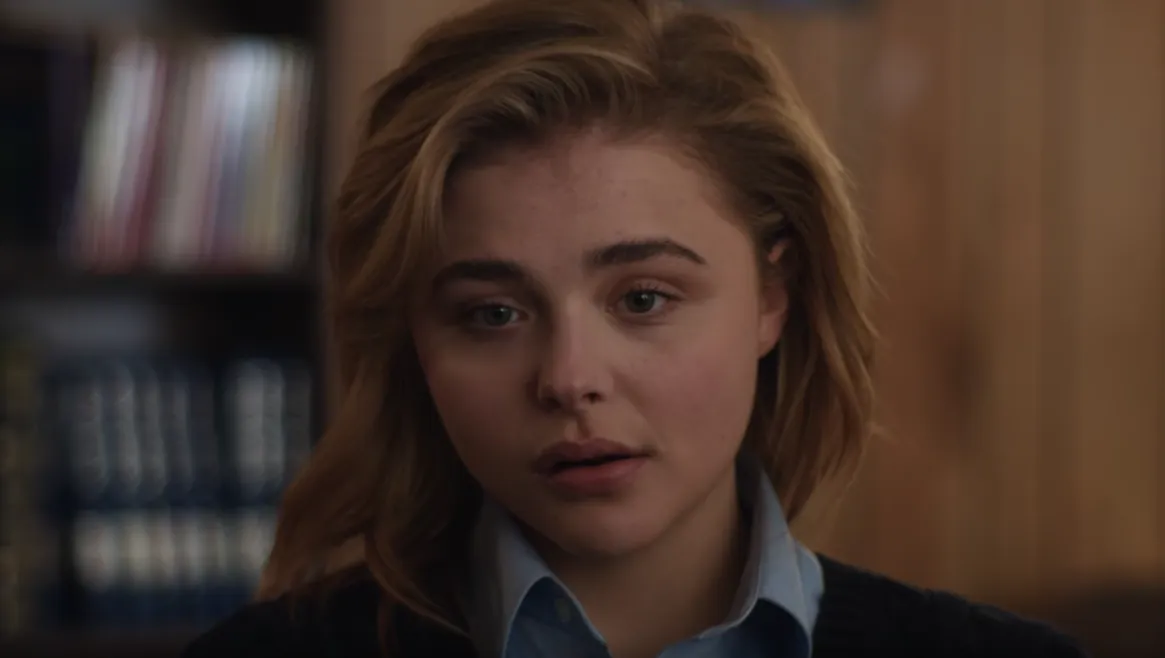For almost 20 years, Chloë Grace Moretz has been acting, and for more than 10 of those years, she’s had to deal with intense paparazzi and social media intrusion. In an interview with Hunger, besides promoting her upcoming series, The Peripheral, Mortez also took the time to discuss the darkness that comes with fame. She can still remember a time before she was constantly in the public eye.
“It is kind of a distant memory, in the sense that I was a kid and 90 percent of the time no one would really bother me. But after Kick-Ass, the first time I experienced paparazzi, it was 10 to 15 adult guys surrounding a 12-year-old girl. They pushed my mom and she ended up falling into traffic – she didn’t get hurt, but the situation was really chaotic. It’s an assault on all the senses, with screaming and flashes. I got into the car afterwards and I just burst into tears. I think that’s my marker of before and after.”
Due to being occupied elsewhere, Mortez was able to remain “blissfully unaware" of the attention she was getting for a while. Besides working on projects such as Martin Scorsese’s Hugo, Tim Burton’s Dark Shadows, and Kimberly Peirce’s Carrie remake, Mortez was also training a lot as a martial arts enthusiast.
“I remember the day I became aware of it,” she says. “And it hit me like a ton of bricks. I was 18 and doing a red carpet. I walked off of it, and I felt so much self-loathing and was really confused about the experience that just went down. I was really unwell after that. There was this complete jarring shift in my consciousness, I questioned who I was. What am I doing? Who am I? Why am I doing this? Like, what does this mean?”
For a long time, Mortez was able to be Chloë that people saw and the Chloë that she was in private. Then those two worlds collided, and Mortez felt really raw, vulnerable, and open. And then came the onslaught of memes about her body. Such as a photo of her walking into a hotel with a pizza box in her hand that got manipulated into a character from Family Guy with the long legs and the short torso. According to her, it was one of the most widespread memes at the time.
“Everyone was making fun of my body and I brought it up with someone and they were like, ‘Oh, shut the fuck up, it’s funny.’ And I just remember sitting there and thinking, my body is being used as a joke and it’s something that I can’t change about who I am, and it is being posted all over Instagram. It was something so benign as walking into a hotel with leftovers. And to this day, when I see that meme, it’s something very hard for me to overcome.”
Chloë Grace Moretz Feels Like a Woman Now
After that, Mortez was “kind of sad.” A layer of something that she used to enjoy, getting dressed up and taking a photo on a carpet, now made her feel super self-conscious. Mortez thinks that body dysmorphia is extrapolated by issues of social media, which she calls a “headfuck.” After that, Mortez basically became a recluse.
“It was great because I got away from the photographers and I was able to be myself, and to have so many experiences that people didn’t photograph, but at the same time it made me severely anxious when I was photographed. My heart rate would rise and I would hyperventilate.”
Mortez said that during the pandemic, being able to blend into a sea of anonymous masks was a tonic of sorts. Once she put on a hat, mask, and hood, she could get away with a lot more, such as going to a corner, biting her lip, or having undocumented pimples. Besides that, there was also a respite in Mortez’s schedule, as she no longer had to think about what she was doing next month or week.
“I know that’s obviously a very privileged thing to say, and I’m very aware of that. But for me it was a time of introspection. I lost my father during the pandemic, not due to Covid-related issues, but there was a big amount of change in a really transformative time period. After that happened I had to go to London to start filming [The Peripheral]. And I think that working again came at the perfect time in a lot of ways.”
According to Mortez, she’s always used acting as a form of therapy, so being able to use that metamorphosis for The Peripheral was both wonderful and healing. They ended up filming the show in Asheville, which, funnily enough, is about 15 to 20 miles from where her father was born and raised. Her father’s side of the family is all from North Carolina.
“There was this wonderful full-circle moment where, by the time we got to that point, it was at the very end of production and there was this beautiful release. My dad and I had a very tumultuous relationship, so by the time that release happened, it was just really meaningful. To say that these past two years have been transformative is an understatement, to say the least. I’m a very different girl than I was. I feel like a woman now.”


